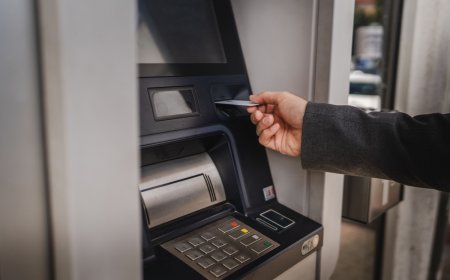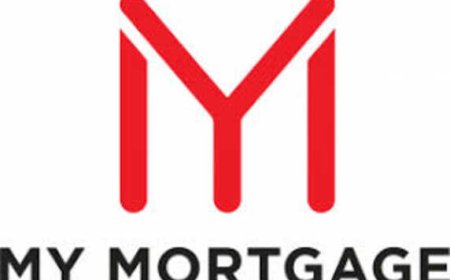Are Blockchain-Based Wallets the Missing Link in Secure Identity Management?
Discover how a cryptocurrency wallet can enhance secure identity management. Learn the benefits and why it's considered the missing link in digital safety.

In today's increasingly digital world, identity management has become one of the most pressing challenges for individuals, businesses, and governments. The way personal data is collected, stored, and verified often involves centralized databases managed by third parties, which are vulnerable to hacking, data breaches, and misuse. As a result, peoples personal information is at risk, and the trust in conventional identity management systems is rapidly eroding.
Amid these challenges, blockchain technology has emerged as a revolutionary solution, particularly through blockchain-based wallets. These wallets offer a decentralized and secure method to manage identity, shifting control back into the hands of the users. The evolution of Cryptocurrency Wallet Development has not only transformed how digital assets are handled but is now paving the way for more secure and privacy-focused identity systems. Blockchain-based wallets have the potential to be the missing link that bridges the gap between security, user empowerment, and seamless identity management.
Understanding the Core Concept of Blockchain-Based Wallets in Identity Management
Blockchain-based wallets originally gained prominence as tools to store and manage cryptocurrencies, but their functionality extends far beyond just handling digital money. These wallets are essentially cryptographic key managers that provide secure access to blockchain networks. When applied to identity management, they serve as personal repositories for identity credentials and verifiable claims that a user controls directly.
Unlike traditional identity verification systems that depend on centralized authorities, blockchain wallets operate on decentralized networks. This decentralization eliminates the vulnerabilities associated with single points of failure. Each users identity information is cryptographically secured and stored across multiple nodes in a blockchain, making it resistant to tampering and unauthorized access.
By leveraging public and private key cryptography, blockchain wallets allow users to prove their identity without revealing more information than necessary. This selective disclosure is a significant step forward in enhancing privacy, as users can share verified proofs of identity or attributessuch as age, nationality, or educational qualificationswithout exposing the entirety of their personal data.
The Self-Sovereign Identity Paradigm
At the heart of blockchain-based identity management lies the concept of self-sovereign identity (SSI). SSI envisions a future where individuals fully own, control, and manage their digital identities without depending on third parties. With traditional identity systems, users have minimal control, and their data is often stored in silos controlled by institutions. Blockchain wallets empower users to store their identity credentials securely on their devices while anchoring proofs on the blockchain for verification.
This shift dramatically reduces reliance on intermediaries and diminishes the risks of data leaks and breaches. Since users can present verifiable credentials directly from their wallets, identity verification becomes faster, more transparent, and privacy-centric.
Enhancing Security and Privacy Through Blockchain Wallets
One of the most significant benefits blockchain wallets bring to identity management is enhanced security. Conventional authentication mechanisms often rely on passwords and centralized databases, which are vulnerable to cyber-attacks. Blockchain wallets use cryptographic private keys to authenticate users securely. These keys are known only to the user and never transmitted over the network, preventing impersonation or identity theft.
Moreover, the data stored on the blockchain is immutable and time-stamped, ensuring that once identity attributes are verified and recorded, they cannot be altered or falsified. This immutable ledger provides an authoritative source of truth that institutions and service providers can trust.
Privacy is another critical aspect. Blockchain wallets support zero-knowledge proofs and selective disclosure techniques, which allow users to prove specific claims about their identity without revealing underlying data. For instance, a user can prove they are above a certain age without disclosing their exact birthdate or show residency status without sharing their full address. This level of control over personal information addresses growing concerns over privacy violations.
Practical Applications and Use Cases
The potential of blockchain wallets in identity management is already being realized in several sectors. Governments in some countries are piloting blockchain-based digital ID programs to provide citizens with secure, portable identities usable for voting, accessing social services, and cross-border travel. Such blockchain IDs can streamline government procedures and enhance transparency.
In healthcare, blockchain wallets can securely store patient identity and medical credentials, enabling safe sharing of sensitive health data across providers while preserving patient consent and privacy. This can reduce errors, fraud, and administrative overhead.
Educational institutions are adopting blockchain wallets to issue and verify diplomas, certificates, and transcripts. This prevents credential fraud and simplifies verification processes for employers and other organizations.
Financial institutions also benefit by using blockchain wallets for KYC (Know Your Customer) processes. With verifiable credentials, banks can onboard customers faster and with lower costs while complying with regulations.
Challenges and Future Directions
Despite its promise, blockchain-based identity management is not without challenges. One major hurdle is user experience. Managing private keys and understanding blockchain concepts can be intimidating for non-technical users. The success of these wallets depends on developing intuitive, secure, and accessible interfaces that cater to a broad audience.
Regulatory and legal frameworks are still evolving in many jurisdictions. Questions about data ownership, cross-border recognition of blockchain identities, and compliance with privacy laws like GDPR need clear resolution.
Interoperability between different blockchain platforms and legacy identity systems is another important consideration. Standardization efforts are underway to ensure that blockchain-based identities can be widely accepted and integrated across diverse ecosystems.
Despite these challenges, the momentum behind blockchain wallet adoption in identity management is growing rapidly. As technology matures and awareness increases, these wallets will likely become foundational tools for secure and user-centric digital identities.
Conclusion
Blockchain-based wallets represent a transformative approach to secure identity management by combining decentralization, cryptographic security, and user empowerment. The shift towards self-sovereign identity facilitated by these wallets promises greater privacy, reduced fraud, and streamlined verification processes across multiple sectors.
As the demand for secure digital identities grows, the role of advanced Cryptocurrency Wallet Development cannot be overstated. Innovators and enterprises seeking to leverage blockchain for identity solutions must focus on developing wallets that prioritize security, usability, and regulatory compliance.
For organizations aiming to lead in this space, partnering with a Top Cryptocurrency Wallet Development Company can ensure access to cutting-edge technologies and expertise required to build robust identity management solutions. WisewayTec stands out as a pioneering company dedicated to delivering innovative and secure cryptocurrency wallet development services, enabling businesses and users to navigate the future of digital identity with confidence.
Frequently Asked Questions (FAQs)
1. How do blockchain-based wallets differ from traditional digital identity systems?
Blockchain wallets operate on decentralized networks, giving users full control over their identity data, whereas traditional systems rely on centralized authorities that store user data in centralized databases vulnerable to breaches.
2. Can blockchain wallets completely eliminate identity theft?
While blockchain wallets significantly reduce the risk of identity theft through cryptographic authentication and decentralization, no system is entirely immune. Proper security practices and wallet management remain crucial.
3. What is self-sovereign identity, and how do blockchain wallets enable it?
Self-sovereign identity allows individuals to own and control their digital identities without intermediaries. Blockchain wallets enable this by securely storing private keys and verifiable credentials under user control.
4. Are blockchain-based identity solutions compliant with data privacy laws?
Many blockchain identity solutions are designed with privacy in mind, using techniques like selective disclosure to comply with regulations such as GDPR. However, legal compliance depends on the implementation and jurisdiction. For businesses seeking to build compliant and secure blockchain wallets, partnering with a trusted Cryptocurrency Wallet Development Company like Wisewaytec can provide expert guidance and tailored solutions.
5. What industries can benefit most from blockchain-based identity management?
Sectors like government services, healthcare, education, finance, and travel stand to gain substantially from blockchain wallets for secure, efficient, and privacy-preserving identity verification.








































